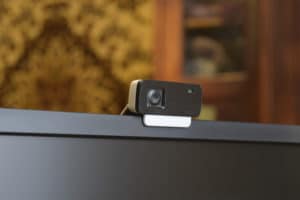California has some of the toughest eavesdropping laws in the country. Most of the time, it is illegal to secretly record a conversation or to videotape without consent. Anyone who is caught unlawfully recording an interaction can be charged with a crime and that recording cannot be used in court. That said, there are exceptions to all rules – including this one.
To learn more about secret recordings and the legality of using them against a defendant in a criminal trial, read on. Then reach out to Chambers Law Firm at 714-760-4088 for a free legal consultation.
California’s laws regarding the admission of recordings
According to Penal Code in California, if a prosecutor or defendant wants to use an audio or video recording in court, it must follow what is known as the two-party or all parties rule. This means that every party who was part of the private conversation must have given their permission to have the conversation recorded. For example, if there were six people on the tape and just one of them did not agree to be recorded, then the recording will generally not be admissible.
Exceptions to the rule
One of the most commonly used exceptions to this rule is showing that the conversation was not private or confidential. If whomever wants to use the recording can show that all participants had no reasonable expectation of privacy then the court may allow it to be used. An example would be a person giving a speech.
Another exception involves a person recording a conversation that they believe will serve as evidence of kidnapping, extortion, bribery, or any other felony that involves violence against a person. For example, if a person is trying to bribe you and you record the conversation and take it to the police, then it can be used as evidence. It will also likely be admitted into court to show that a person was attempting to commit a serious crime.
There are gray areas too
In addition to the exceptions, there are some areas of this rule that are not clearly outlined. For example, one recent issue involved a parent recording a babysitter and finding that the babysitter was abusing their child. This was found to be admissible in court. The issue was not whether the babysitter had agreed to the recording, as this was an example of the second exception above. However, the court did consider whether or not the parent of the child had the right to consent on behalf of their child.
If you are facing any type of criminal charge and someone is attempting to use a recording you were involved in, then it is time to contact an attorney. The easiest option is to call Chambers Law Firm at 714-760-4088. We are here to offer a free legal consultation so that you will better understand your rights and your options. Call us today!





